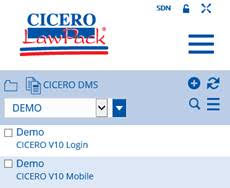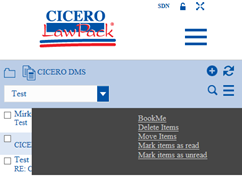This is the second article in a two-part series that looks at the law practice of the future. It is largely based on the Law 2023 Study (www.law2023.org), which predicted seven evolutions law firms will undergo by 2023:
- Technologies Will Enable Lawyers to Bill for Real Value
- Firms Will Develop Offerings That Transcend Jurisdiction
- Demand for Responsive Institutions Will Create New Markets for Accountability
- Firms Will Tap New Talent and Enable New Pathways to Practice
- Information Access/Transparency Will Push Firms to Seek Hyper-Specific Markets
- Firms Will Launch R&D Departments to Create New Offerings
- User/Anthropological Research Will Shape Client Experience of Legal Products
The first three were discussed in the first article. In this second article, we’ll focus on evolutions four to seven. Note that the original Law 2023 Study was published two years ago, and that more recent findings have been integrated into this article.
Evolution 4: Firms Will Tap New Talent and Enable New Pathways to Practice
The study found that “all kinds of companies are coming to grips with how they will acquire the skills and abilities they need in a workforce of unprecedented demographic and cultural diversity. Many organizations are also faced with the challenge of rapidly developing capacities they never needed before. Law firms will need to figure out how to hire new kinds of minds and address ongoing value concerns from clients.”
This is one of the evolutions that is already clearly visible. Traditionally, law firms consisted of lawyers, assisted by some administrative aids. Larger firms could have paralegals, accountants and an IT department. Now, it is not uncommon to also find project managers, client service managers, programmers, business analyst, industry advisors, etc. in law firms.
Another new tendency is to find lawyers who no longer are ‘just lawyers.’ On the one hand, there are e.g. scientists, engineers and mathematicians who are switching to the legal sector, and combine their fields of expertise. On the other hand, we are witnessing the emergence of what some call the “T-shaped lawyer”. Traditionally, lawyers had a deep knowledge in one discipline or ‘vertical’ market, i.e. the Law. A T-shaped employee, however, has a wide breadth of knowledge across multiple disciplines that allow them to bring new and innovative ways of thinking to their job. Some Law Schools already offer a curriculum for T-shaped lawyers. As a result, individuals with a deeper understanding of technology and data, as well as the law, are changing the way the law is done. We can find some examples of that in the fields where AI is being integrated into the law.
Millennials are also changing the legal workplace. They grew up in an ‘always online’ paradigm, where services are available 24/7. More flexibility is required because the work can be performed at any place and at any time. So, they approach their work differently, and that affects the way law firms operate:
- They prefer to work independently
- The prefer assignments that can be done from home
- They don’t care much for the traditional meaning of “work/life balance”
- They value constructive coaching/mentorship relationships
- Leadership and professional development opportunities are important
- They give back
In short, in the office of the future, the employee gets more freedom, but also more responsibility. Law firms that adopt more flexible work practices and pay structures will be best prepared to compete with other industries for the capable people needed to fill these new jobs.
Evolution 5: Information Access/Transparency Will Push Firms to Seek Hyper-Specific Markets
The study found that “clients will have much more access to objective information about the effectiveness of firms and individual lawyers. Public companies in particular will face increasing pressure to rely on firms with the best track records.”
Increased competition on the legal market already pushed law firms to explore niche markets and to build greater expertise in specific fields. What we are witnessing now is that clients get access to all kinds of extra information about law firms like their success rates and effectiveness. This will force law firms to “define and dominate niche markets in which they can credibly claim to be the best. As with other industries, changes to legal markets will increasingly be driven by organizations’ collective ability to produce disruptive innovations, in addition to individual lawyers’ skills and experience.” Which leads us to the next topic.
Evolution 6: Firms Will Launch R&D Departments to Create New Offerings
The study found that “the variety of demands on law firms will lead to a new diversity in the way legal solutions are conceived, packaged, sold and applied. Some of these novel legal products will immediately find vast markets; others could take years to catch on or turn out to be false leads.”
Technology is changing the way that law is being practiced. It is to be expected that law firms will start creating their own R&D departments, either to take the lead or to keep up with the pace in a certain field. These R&D departments may focus on products, services or methodologies, which respond not only in changes in technology on the market, but also to shifts in industry needs and client preferences.
Evolution 7: User/Anthropological Research Will Shape Client Experience of Legal Products
The study found that “a deeper understanding of users’ experience is increasingly becoming the driving force behind the offerings of all kinds of companies. Companies are using data and design to predict consumers’ desires, aiming to appear in their lives before they even know what they want.”
The role of the clients’ experience when dealing with the law firm is becoming an even more important aspect of great customer services than it was before. Just like online retail shops can keep track of what you and other people buy to give you recommendations, technologies are being developed to anticipate the clients’ future needs. This may lead to greater understanding of entire industries, which in turn will allow law firms to approach their clients with new opportunities instead of simply reacting to their problems.
Sources:






